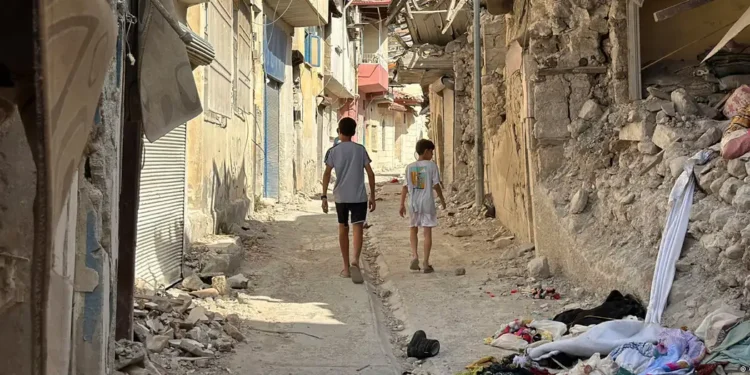Türkiye (Brussels Morning newspaper) Following the last earthquake, civil society organizations worked very effectively. The space of civil society has become very narrow, but despite this, our organizations were able to come together quickly.
Certain issues were discussed throughout Türkiye immediately following the earthquake, including the preparedness levels of public institutions, problems in disaster management, particularly the lack of coordination between the central government and local government, civil society, delays in post-disaster response, and issues related to zoning inspection and construction in Türkiye.
Türkiye sits on the tectonic plates and is an earthquake-p susceptible region where truly devastating natural phenomena occur and have been occurring for thousands of years. We face this reality but forget it very quickly after disasters. Turkey is always failed to sustain pro-disaster risk management and post-disaster response.
Following the recent earthquake, non-governmental grassroots groups and CSOs performed extremely well in post-disaster rescue as well as moving necessities to the region and providing them to earthquake victims, which they organized promptly after the tragedy. Despite the fact that the civil society area was quite limited, our non-governmental groups were able to quickly share their experiences. Mostly they interfered in the process quicker than the government.
Coordination is the answer
We hold online meetings with 72 civil society organizations in 10 thematic areas related to the earthquake. The purpose of the meetings was to coordinate, identify issues, and provide solutions. Our non-governmental groups gathered and shared their experiences and challenges.
Following the earthquakes, we realized the need for such a civic space, where non-governmental groups could gather, talk, and identify needs and concerns. Because we are a network, we brought together both our member organizations and our field stakeholders. Between February 23 and March 17, 2023, in ten subject areas connected to the earthquake, humanitarian aid, disaster management, women’s rights, children’s rights, handicapped rights, health, education, ecology, environment, animal rights, youth rights, LGBTI + rights, and urbanization. We had online talks with 72 non-governmental groups, as well as 93 representatives, professionals, and academics.
These sessions covered more than just problems. We discussed solution ideas, how to overcome these challenges, how to battle problems in future earthquakes, and how to decrease catastrophe risks from the standpoint of civil society. The full outcomes of these meetings are contained in the reports before you. In every subject, there were highly specific, applicable results and remedy proposals.
Capacity Building, Effective Collaboration, and Civic Rights
As a result of these sessions, we created a report. We issued a special earthquake bulletin and extensively distributed the concrete recommendations and conclusions of the sessions through social media. We discovered two areas, that cross all areas, when preparing the report and during meetings.
So, what exactly were these two common issues: Civil society-local government collaboration is lacking, as is cooperation between civil society and the central government. So we need to talk about it and get it out there. Another critical issue is what can be done and what efforts can be made to make non-governmental organization coordination more effective, professional, and long-term.
Fragile groups such as women, handicapped people, LGBTIQ+, the youth, children, and animals are effected deeply by disasters. Their needs are diversified from the community. For example, one of the problems women face is insecurity. LGBTIQ+ people face difficulties in housing and employment in the cities they migrate to due to their sexual orientation. It was stated that problems such as increased human rights violations, hate and discrimination-based violence in the region were identified. It is crucial that the community’s civic rights are safeguarded and that they are informed about how they can access aid at any moment.
Aside from civic rights, we also need to grasp the basic necessities that go beyond health and security. They are interconnected at the same time. Schools and institutions, for example, have to continue operating and provide lessons to pupils. Students from impacted areas who lost a lot will have to confront a new reality.
Civil society must establish solid coordination that will be sustainable in the future, as well as networks across the country that will allow civil society to share information with one another. Adopting a human rights-based approach from all service/aid delivery to rescue operations is a vital necessity. All NGOs should do research on how to enhance catastrophe awareness in society and lobby for a more effective response from the centralized government. That is a healthy relationship between institutions, citizens, state, and organizations.
Opinions expressed in the op-ed section are solely those of the individual author and do not represent the official stance of our newspaper. We believe in providing a platform for a wide range of voices and perspectives, even those that may challenge or differ from our own. As always, we remain committed to providing our readers with high-quality, fair, and balanced journalism. Thank you for your continued support.Sincerely, The Brussels Morning Team




